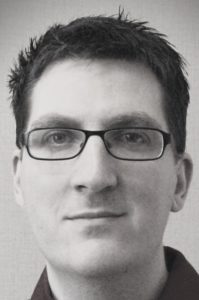
James Murphy read Theology at King's College London before completing a MA in the Psychology of Religion at Heythrop College, University of London. He is currently undertaking a PhD in Psychology at Canterbury Christ Church University. His research explores the beliefs that people hold about themselves and the world as well as how those beliefs change.
Extensive research has been conducted by psychologists, and continues to be conducted, exploring beliefs, values and perceptions. However, despite being a central part of the lives of so many people, religion and spirituality continues to be a fringe concern for many psychologists - perhaps because they are frequently perceived as being unscientific.
The observation that ideas are not inherently radical, but that the term is a relative one that involves comparisons to social norms, is of critical importance. The value judgments that we ascribe to ideas are not innate to them but are instead reflections of our own beliefs. These beliefs and norms vary between societies and over time within society.
Challenging this simplistic conception of religion and its consequences lies at the core of the Critical Religion movement. Schaefer's interview is an invitation to explore how we can do that most effectively. How do we translate critical insights that have significant real world implications into ideas that can easily be transmitted to students and the wider public?
This work is licensed under a Creative Commons Attribution- NonCommercial- NoDerivs 3.0 Unported License.
The views expressed in podcasts, features and responses are the views of the individual contributors, and do not necessarily reflect the views of The Religious Studies Project or our sponsors. The Religious Studies Project is produced by the Religious Studies Project Association (SCIO), a Scottish Charitable Incorporated Organisation (charity number SC047750).